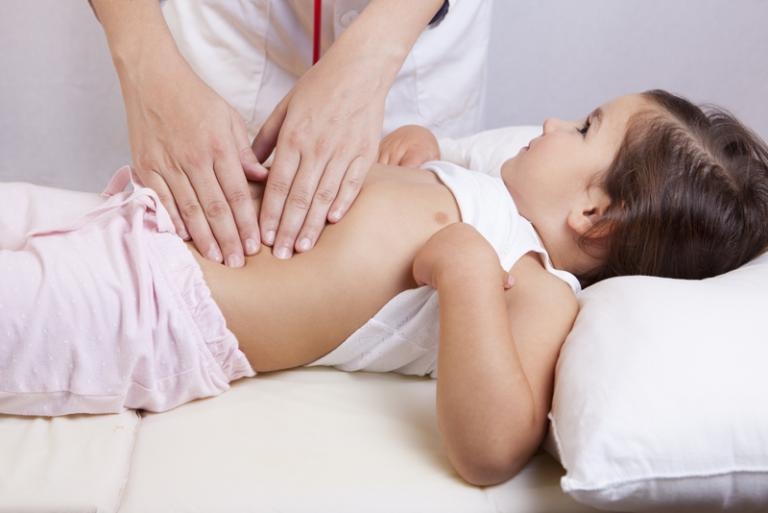When your child complains of stomach pain, it can be a worrying experience for any parent. Stomach pain in children can stem from a variety of causes, ranging from mild and temporary issues to more serious conditions. Understanding how to approach and manage this discomfort is essential for effective treatment. In this comprehensive guide, we’ll explore how to address your child’s stomach pain, when to seek professional help, and why consulting a gastroenterologist in Chennai might be beneficial.
Understanding the Causes of Stomach Pain
Stomach pain in children can arise from a wide range of causes. Some of the most common reasons include:
- Indigestion and Gas: Often due to overeating, swallowing air, or consuming certain foods, leading to discomfort and bloating.
- Constipation: Difficulty passing stool can cause cramping and pain.
- Gastroenteritis: Viral or bacterial infections that cause inflammation of the stomach and intestines, leading to pain, vomiting, and diarrhea.
- Acid Reflux: The backflow of stomach acids into the esophagus can cause pain and discomfort.
- Food Allergies and Intolerances: Reactions to certain foods, such as lactose intolerance or gluten sensitivity, can lead to stomach pain.
- Appendicitis: Inflammation of the appendix, which can cause severe pain in the lower right abdomen.
- Urinary Tract Infections (UTIs): Though less common, UTIs can cause abdominal pain, especially in younger children.
Initial Steps for Managing Your Child's Stomach Pain
When your child experiences stomach pain, follow these initial steps to alleviate discomfort and identify the cause:
a. Assess the Pain
- Location: Note where the pain is concentrated. Pain around the belly button can indicate indigestion or gas, while pain in the lower right side might suggest appendicitis.
- Duration: Determine how long the pain has been occurring. Short-term pain might be due to something minor, while persistent or worsening pain requires attention.
- Severity: Gauge the intensity of the pain. Mild discomfort may be managed at home, but severe pain, especially if accompanied by other symptoms, warrants professional evaluation.
b. Monitor Symptoms
Observe any additional symptoms that accompany the stomach pain, such as:
- Fever: Could indicate an infection.
- Vomiting or Diarrhea: May suggest gastroenteritis or food poisoning.
- Changes in Appetite: Reduced appetite or refusal to eat can be a sign of digestive issues.
- Behavioral Changes: Unusual irritability or lethargy can indicate discomfort or a more serious condition.
c. Home Remedies
For mild stomach pain, you can try the following home remedies:
- Hydration: Ensure your child stays well-hydrated, especially if they are experiencing vomiting or diarrhea. Oral rehydration solutions can help replace lost fluids and electrolytes.
- Gentle Diet: Offer bland foods that are easy on the stomach, such as toast, crackers, or rice. Avoid spicy, greasy, or rich foods.
- Warm Compress: Applying a warm compress or heating pad to the abdomen can help relax the muscles and reduce pain.
- Rest: Encourage your child to rest and avoid physical exertion until the pain subsides.
d. Over-the-Counter Medications
Consult with your pediatrician before administering any over-the-counter medications. For mild gas or indigestion, medications like simethicone might be recommended, but always follow dosing instructions and avoid giving adult medications to children.
When to Seek Professional Help
While home remedies can be effective for minor issues, certain situations require prompt medical attention. Seek help from a best gastroenterologist in Chennai or your child’s pediatrician if you notice:
- Persistent Pain: Pain that lasts for more than a few hours or keeps recurring.
- Severe Pain: Intense pain that interferes with your child’s daily activities or sleep.
- Fever: High fever in combination with stomach pain could indicate an infection or more serious condition.
- Vomiting or Diarrhea: Severe or prolonged vomiting or diarrhea, particularly if accompanied by dehydration signs.
- Blood in Stool or Vomit: Presence of blood can be a sign of a serious condition and requires immediate evaluation.
- Difficulty Breathing: Pain that is associated with breathing difficulties, especially if accompanied by other symptoms like a rash or swelling.
- Behavioral Changes: Significant changes in behavior, such as severe irritability or lethargy.
Why Consult a Gastroenterologist in Chennai?
If your child’s stomach pain persists or you are concerned about underlying conditions, consulting a top gastroenterologist in Chennai can provide specialized care and diagnosis. Gastroenterologists are experts in digestive health and can offer the following benefits:
- Accurate Diagnosis: Advanced diagnostic tools and expertise to identify the root cause of the pain, such as endoscopy or imaging tests.
- Personalized Treatment: Tailored treatment plans based on the specific diagnosis, which may include medications, dietary changes, or other interventions.
- Comprehensive Care: Management of chronic conditions or complex cases that require ongoing monitoring and treatment.
- Parent Education: Guidance on how to manage and prevent stomach issues, including advice on diet and lifestyle changes.
Conclusion
Addressing your child’s stomach pain involves careful assessment, appropriate home care, and timely medical consultation. While many cases of stomach pain resolve with simple remedies, persistent or severe symptoms should be evaluated by a healthcare professional. For specialized care in Chennai, a gastrologist in Chennai can offer expert advice and treatment options to ensure your child’s digestive health and overall well-being. Taking these steps can help you effectively manage your child’s discomfort and ensure they receive the best possible care.



